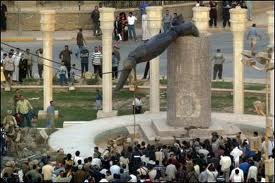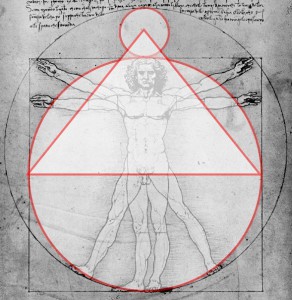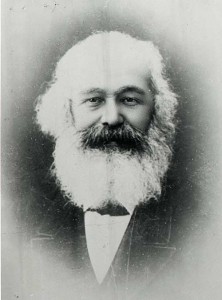Ed.note I republish this because of the recent theme of discussing dialectical perspectives and opinions of Iraqis just after the ‘occupation’. This not so new book, by Kurdish author Kamal Mirawdeli is nevertheless relevant today because of the examination of the ‘motives’ of the U.S. for undertaking to ‘liberate’ Iraq, and concludes despite the misgivings that we all understand, that the chance at ‘freedom’ was worth it. I think he uses the term ideology erroneously, but the insights such as of the Dinosaur left (pseudoleft) and nationalistic right achieving unity in their wrongness over this issue is a point correctly observed. Also, his observation that opponents of the task ‘merely play with words’ as opposed to having a care to bring about the best possible outcomes is largely correct imv.
America in Iraq: Dialectics of Occupation and Liberation
Kamal Mirawdeli
Book Review by keza 2005
From authorhouse (inexpensive electronic version available)
A collection of his articles spanning three years (May 2002 – November 2004). Many of these can be read at Kurdish Media by clicking here.
Here is a sample chapter (scroll below it to see the Table of Contents) :
US’s military forces should stay in Iraq
20 April 2003
Step by step, brick after brick, idea after idea, and institution after institution: the US should never leave Iraq until a new fully democratic modern society is well-established and the process of democratisation in the Middle East is well under way!!
It is too normal, vulgarly expected: Iraq’s neighbours, including Turkey, ask the US to leave Iraq. They are worried about Iraq’s independence. They want Iraqi people to choose their own rulers and govern themselves. Yes, only few weeks ago the same people did not want the US and Britain to intervene. They said the Iraqi people were happy with Saddam and if they wanted change they would change the regime themselves.
These people do not ever feel shame. They never learn. They never see and hear. They can never feel that the carpet under their feet has been pulled. The earth under their feet has shaken. The warm sun they are used to, does not shine on the same world.
They are worried about one thing and one thing only: Freedom. This word has been omitted from their pocket dictionary. It has been tabooed on their policy agenda. It could only appear from time to time in their nightmares. But it always existed in people’s dreams, hopes and aspirations. And these all came true. Thanks to the US.
No one in this age can be so ignorant or ideologically prejudiced as to claim that the US liberated Iraq as an act of charity to Iraqi peoples’. Of course the US has its own vital, yes imperial, interests in Iraq and the region. But what age in human history has been free of empires and empire-building? Why is Islam a religion in Indonesia, Morocco, Bosnia, and Malaysia as well as in Pakistan and Middle East? How did Christianity reach Europe and North and South America? Why is English a predominant international language? Why is globalisation an unstoppable historical process?
But it is wrong scientifically, logically and morally to measure the present with the yardsticks of the past, to let ideological prejudice corrupt pragmatic sense, to see the world with dark glasses and then claim that darkness covers the four corners of the world because the US is spreading its tyranny all over the world.
The prophets of doom and gloom, the messengers of distortion and deception, the forces of conservatism and old Europeanism, the dinosaurian Left and nationalistic Right, the selective hypocrites of peace causes – all those who, for one reason or another, are detached from reality, ignorant of the operation of history, incapable of understanding universal relativity of issues and inherent deficiency of ideas, filled the world with hue and cry: Don’t attack Iraq! Minimum 500,000 people will be killed. Two million children will die. Four million refugees will need to be supported. There will be a Third World War. There will be a repetition of Vietnam. There will be rage, wrath and revolution in Arab streets. Fundamental Islamism will sweep the Middle East and vengeful Islamist terrorism will visit every home in US and Britain. Et cetera. Et cetera. Et cetera.
No one of this motley mix ever said some people in Iraq would be happy. Some tyrannical structures would be dismantled. Some hope would be regained to 25 million enslaved souls. Hope of freedom and democracy would afflict and affect the slavery system of the Middle East.
I was reading all this rubbish coming from famous Middle East experts, revitalised retired politicians, visionary Leftist imams, reactionary Islamic ideologues, Middle East rulers, think tank analysts- with pain, anger and often contempt. These people had learnt nothing from Bosnia, Kosovo and Afghanistan. They had refused to move to the 21st century: the age of technological liberation, the age of globalisation of information and universalization of the values of freedom, democracy, human rights and individualism. They wanted UN to be the saviour of fascists in the name of sovereignty and be an absurd undertaker for the denied funerals of millions of the victims of genocide in the name of international law. They were to coin a word: ideo-fascists.
At this moment when I am writing this, I see and hear on my TV screen a paradox. A group of Iraqis in Baghdad are demonstrating against America. Some people from the same group ask the Americans for jobs! The BBC commentator finds this a strange contradiction.
It is not. It is only superficially contradictory. Ordinary people are NOT demonstrating against the US. If they do it is because they do not have jobs and opportunities now. If the US can create an Iraq in which there will be jobs, opportunities for self development and freedom, then there will be no demonstrations by ordinary people.
But still, like the die-hard Leftists of Europe who are still operated by the 19th century Marx’s Manifesto of the Communist Party, there will be people who will be ideologically exploited and operated by interest groups inside and outside Iraq, who will be demonstrating against the Americans because of ideological indoctrination not moral conviction. This act of protest will be facilitated by the very prospect of emerging democracy but also will eventually be neutralized and marginalized by the process and practice of democracy. Once people know that ideologies like Ba’ath or its factional fictional religious alternatives have nothing to offer but death and destruction, in the name of independence and martyrdom, then people will be able to choose rationally and determine their lives as individuals freed from all shackles of totalitarianism, dogma and demagogy.
I also heard and read a lot about the phenomenon of looting in post-Saddam Iraq?
Some people asked: why do Iraqis destroy their own country?
Sorry, mate! Wrong question. Faulty language.
If the questions are wrong, what hope are there for correct answers?
Iraqis do not destroy their country. This has never been their country, their government, their institutions, their wealth, their resources and their opportunities.
Everything belongs to the sole leader and his clique. The rest are dispossessed underclass: deprived, degraded, dehumanised, exploited, abused, and indoctrinated. They are the Leaders’ people. The party’s people. They do not own anything. They do not own themselves, either. They do not own their bodies, their dignity, and their freedom.
But like all other human beings in the world, the Iraqis have basic human needs. They also have hopes and dreams.
Their basic needs have necessarily been materialistic. They always knew, thanks to globalisation, that they lived in a materialistic world. The Iraqi people also wished to have good homes, food, fashion dresses, beautiful furniture, new cars, TVs and fridges. They also wanted to have good jobs, happy families, and well-educated children. Then they had dreams: to be a part of this globalised world. To have access to information. To have mobile phones, satellite TVs and computers. To have opportunity to learn languages, to travel and enter international labour market. Above all to be free individuals. To think freely and express themselves freely. But all these basic and higher human needs were denied and suppressed by the apparatuses of the despotic regime.
That is why there was this wide-spread looting spree: as expression of alienation from what supposed to be their country, heritage and culture. As a revenge from a system and a culture which enslaved them. And as expression of their long-suppressed desire to be part of the modern materialistic world. That is why taking a vase, a chair, a piece of wood, a window handle, a useless piece of metal, a double-deck bus, etc all had the same psychological and historical effect. It was a show to allow the Iraqis to see each other, feel each other, loot together to feel that what the end of slavery and dictatorship was not a dream. It was really the end of the nightmare, of tyranny, of despotism. This deep-rooted frustration for lack of material needs was important to find an outlet even if it took criminal proportions. Obviously there were also organised criminal gangs. But this will be a short-lived phenomenon. It will soon be over. Every thing wills settle down. Sorry again, the prophets of doom!
However, the satisfaction of the higher need of understanding freedom and how to achieve it democratically will come much later and need a long time. It should not be rushed. The US should stay put in Iraq until Iraq would really and practically join the front of free democratic nations. This can only be done if the US stays in Iraq and pursue its agenda of liberation and democratisation in the Middle East for the following reasons:
1. Reconstruction of Iraq and reconstruction of Iraqi peoples’ psyche and culture:
It needs a lot of time for Iraqi people to realize who they are, what world they live in, what have they gone through, what has happened to them and to what extent they can be themselves. Iraq throughout its history has known nothing but the culture of violence, despotism and killing. Saddam is only a duplication of Iraq’s various Hajajs. It is the whole culture which needs to change and the psyches of Iraqi individuals, which have been conditioned to fear democracy and freedom and worship oppressors and tyrants, need to be reconstructed. Without achieving this there will be no hope for democracy and real freedoms. And to achieve this Iraq needs decades not years.
2. Stability and conflict in Iraq and the region: Anti-freedom fascists lament destabilisation in Iraq and Middle East if the US stays. Do you remember Arab League’s claim that the gates of hell would open if the US attacked Iraq? But is there a grain of truth in this?
In fact without the presence of US’s forces, Iraq will degenerate into anarchy and civil war. Already Saudi-backed Wahabiis are attacking the Shi’a in Baghdad. Syrian-backed Saddam’s non-Iraqi Fedayeen are doing the same. Iran will definitely support Badr Shiite army. This will draw other countries into the conflict. These developments will cause destabilisation of Iraq and the region and not the presence of US forces. Perhaps some cynics say: But it is the presence of US in the first place which has created this chaotic situation. This situation, first, is not chaotic. It is a natural process of readjustment after thirty years of a fascist minority Sunni rule in Iraq and the brutal oppression and enslavement of the Shiite and other non-Baathi Iraqis. Second: Was the region safe with Saddam? Does any one imagine that there will be genocide of Kurds, eight years of Iraq-Iran war and the invasion of Kuwait with the presence of Americans? But why didn’t Arab League and Arab and Islamic states intervene to stop the carnage of eight years of the Iraq-Iran war? Why did all Arab states especially Saudi Arabia and other Gulf states pour billions of dollars to support Saddam’s racist Qadissiya war against Iran? Was this for the stabilisation of the region and the progress and prosperity of Iraqi people?
In fact what the tribal dictatorial regimes of the Middle East are afraid of is freedom and democracy. These words will sooner or later enter the daily usage of Arab street language and this will be more dangerous to the regimes than Saddam’s Scud missiles or American bombs.
3. The protection of Kurdish people: The Kurdish leaders took a great risk by allying themselves unequivocally and courageously with the US and putting their army under the American command. There was always the risk of Saddam’s retribution including the use of weapons of mass destruction. But it seems that there was a secret agreement between Turkey and Saddam by which Saddam’s regime left Kurdistan and the Kurds to Turkey to deal with. Information published by the Sunday Times (13 April 2003) from secret papers of Iraq’s general security in Baghdad indicate that Iraqi authorities were certain that Turkey would invade Kurdistan “as soon as the US attacks Iraq.” Also Iraqi information minister comic Sahhaf in reply to a question about the Kurds said, “We are not worried about the North. We have a special plan for the North.”. It seems that the special plan was a secret coordination with Turkey.
However, the Kurds now are in a very sensitive and serious position. They remain in a great danger as long as the dictatorial anti-Kurd regional governments stay in power. Pan-Arab nationalistic media are already conducting an ongoing campaign of racial hatred and aggressive disinformation against the Kurds. Iran has “sleeping” armed Islamic groups in Kurdistan which it can provoke, arm and use to destabilise and undermine Kurdish administration in Kurdistan. Without the US’s presence Turkey will find no difficulty in creating a crisis and find an excuse to attack liberated Kurdistan. Even within Iraq, Kurdish secular government will be greatly suspected, despised and even threatened even by Shiite groups calling for an Islamic state or at least a great role for religion in the running of the affairs of the state which, in the last analysis, means abolishing democracy, human rights, free thoughts and rights of women.
In fact the new situation and the role of Kurds in overthrowing dictatorship in Iraq has mapped out the reality and size of the Kurdish nation in the Middle East. Worried about the impact of Kurdish freedom in South Kurdistan on their colonised and enslaved Kurds, the states of Turkey, Syria and Iran will use any means at their disposal individually and collectively to undermine Kurdish freedom and roll back the wheel of history. But this is no longer the history of Kurdish people alone. It is also the history of the US’s project of liberation and democratisation in the Middle East. Will the US betray the Kurdish people and thus belie its own ideas and ideals? Will it leave alone the people who with great courage, commitment and dignity fight side by side with American soldiers for liberation of their land and democracy in the Middle East? The US should be true to its mission of liberation and democracy. Then it will find in the Kurdish nation, not only the six millions of South Kurdistan but also the whole 40 million Kurdish people in the Middle East as well as Kurds in Diaspora, the most reliable and courageous long-term allies and friends.
4. Protecting Iraqi democracy from regional intervention and influence:
Would it have been possible to liberate Germany alone from Nazism if the rest of Europe had been already Nazi states? Wouldn’t these states do everything in their power to undermine Germany’s freedom again? This is a hypothetical question for the benefit of comparison. The US’s project of liberation and democracy in Iraq will collapse as soon as its forces leave Iraq. Saudi Arabia, Syria, Egypt, other Arab countries as well as Iran and Turkey will do everything in their power to influence, buy, blackmail and undermine any democratic government not protected by foreign forces. It would not be impossible to cook a coup and reverse the wheels of history to the Saddamite old order. There were supposedly seven million Baathist members. Even if ten per cent of these were really indoctrinated and committed, it would be possible with outside support to regroup them. Perhaps Saddam or his sons, if they are still alive, would have another chance to be this time resistance fighters with the help of Arab regimes!
In short it would be extremely foolish for the Americans not only to leave Iraq but not to pursue their democratisation project in the Middle East.
5. Political correctness and realpolitik: Many people still out of residual ideological anti-imperialism and fashionable anti-Americanism call irresponsibly, without understanding historical reality and globalisation process, for the withdrawal of American forces from Iraq claiming that the existence of US’s forces will harm Iraqi people and their independence, self-government and progress.
Of course the Americans are not so naïve as to listen to preachers of doom. Realpolitik means the American army will stay. If some people think this means endangering Iraq’s independence, they should not just play with words. We should analyse and understand essences and realities. What is independence? What did Iraqi independence under Saddam and previous dictatorial Arab regimes mean? Whose independence was that? Was Iraq really independent of world imperialism? Who installed Saddam and transformed him into a monster?
On the other hand the concept of independence on a small planet crowded with interdependent states has always been a relative one and never a real one for any country including the US. Is Britain an independent country? Aren’t there US military bases here unapproved by British parliament? Aren’t there US bases in Japan, Germany, Italy, South Korea, Saudi Arabia, Qatar, Kuwait, etc.? Does this mean these countries are not independent? So why shouldn’t there be US’s bases in Iraq. Definitely there should be US’s military bases in Kurdistan. That is the only hope of survival and freedom for Kurdish people.
Iraq’s real independence and prospect of progress and prosperity depend on the long-term existence of US’s military forces. An additional positive outcome of this will be ensuring peace and stability associated with prospects of democracy and freedom in the whole Middle East.
6. The national security and interests of the US: The US cannot afford to start all this process and military operations all over again as a tragic farce once, for example, Syria will act as a rogue state seeking weapons of mass destruction and indulging in the oppression and genocide of Kurdish people, or when Iran joins North Korea in the production of nuclear weapons and oppression of non-Persian nations or when Saudi’s Wahabism continues to supply ideology, money, weapons and training to terrorists such as Ansar al-Islam all over the world.
Mr Donald Rumsfeld called France and Germany old Europe. This, in a sense, is true. But there is also old America and new America. There was old America of Kissinger, Ford and Reagan who supported fascism, dictatorship and persecution and genocide of minorities all over the world in a way that contradicted all the values of freedom, human rights and democracy which US is proud of and aims to propagate in the world. In this article I mean new US: a great superpower that does not hesitate to topple dictatorships and fight fascists and terrorists for a world in which the values of freedom and democracy will be universal and non-compromising.
TABLE OF CONTENTS
INTRODUCTION ……………………………………………………………….. vii
PART ONE THE UNITED STATES AND THE KURDS ………………1
The US and the Kurdish nation in the Middle East: Old games
or new horizons? 1 ………………………………………………………….3
The US and the Kurdish nation in the Middle East: Old games
or new horizons? 2 ………………………………………………………..11
PART TWO AFTER SEPTEMBER 11 ……………………………………23
Is there really a war in Afghanistan? What is it for? …………….25
Who is Bin Laden? And what is Mr Blair’s Mission? ………….. 29
Tony Come Home, the kids need you and America is kidding
you? …………………………………………………………………………… 38
The New War Order ……………………………………………………….42
The tale of two Talibans: Afghanistan & Turkey ………………… 46
The moment of truth: Who rules the world? …………………….. 50
US after September 11: Towards a workable international
doctrine for a new world order! ………………………………………. 54
US after September 11: Towards a workable international
doctrine for a new world order! ………………………………………..59
US after September 11: Towards a workable international
doctrine for a new world order! Part III ……………………………..62
Do you really want to stop the war? ………………………………….72
Culture and Repression: the case of the Middle East sociopolitical
order ………………………………………………………………..78
PART THREE AMERICA IN IRAQ ………………………………………..87
The real Kurdish view! ………………………………………………….. 89
The story of a war dictated by foe friends: the spoiled child
who stabbed America in the back! …………………………………102
There is nothing wrong with a prolonged war of liberation! .. 113
No to the United Nations! Yes to the United Democratic
Nations! …………………………………………………………………….. 115
With friends like these, will anyone need enemies? ………….. 118
Tip of the iceberg, but will the pro-Saddam mob ever feel
ashamed? …………………………………………………………………..120
US’s military forces should stay in Iraq …………………………..122
American policy in Iraq: the dialectics of occupation and
liberation – I …………………………………………………………………131
American policy in Iraq: Dialectics of occupation and liberation
– II ……………………………………………………………………………..141
American policy in Iraq: Dialectics of occupation and liberation
– III …………………………………………………………………………….150
American policy in Iraq: Dialectics of occupation and liberation
– V ……………………………………………………………………………..163
Did BBC kill David Kelly on behalf of Saddam? ………………..167
Paul Bremer’s Interview with Asharq Al-Awsat 31 January
2004. …………………………………………………………………………172
Will Paul Bremer be allowed to turn Bush’s liberation mission in
the Middle East ……………………………………………………………178
From massacre in Madrid to carnage in Qamishli: Fact and
fiction …………………………………………………………………………183
President Bush should not leave Iraq an unfinished business
again! …………………………………………………………………………188
The two state solution: Divide and democratize! ………………195
Paul Bremer: A man living in a cloud-cuckoo-land ……………202
Death in Darfur, Decadence in Democracies! ………………… 209
De-liberation: Bremer’s legacy and post-Bremer choices ….217
President Bush and the World War Four of liberation? …….. 225








Recent Comments